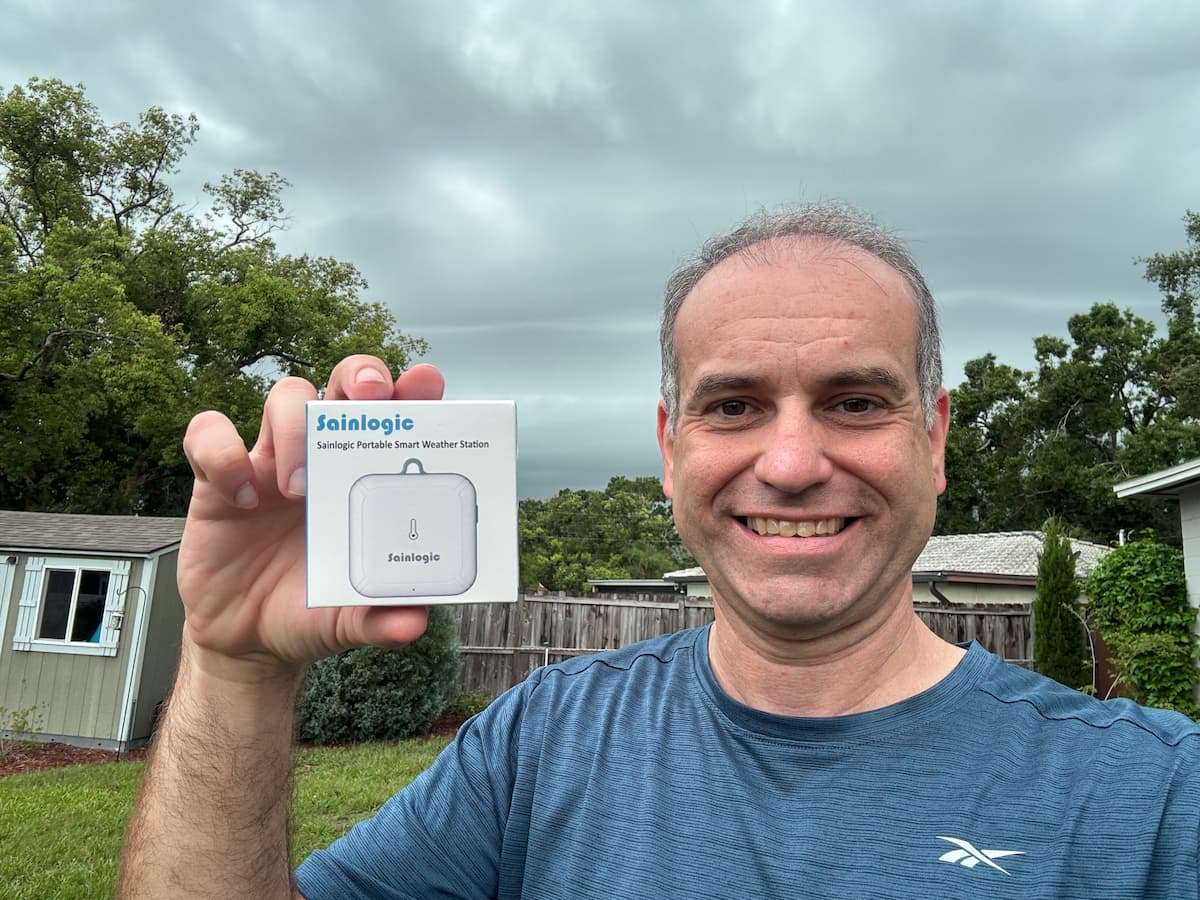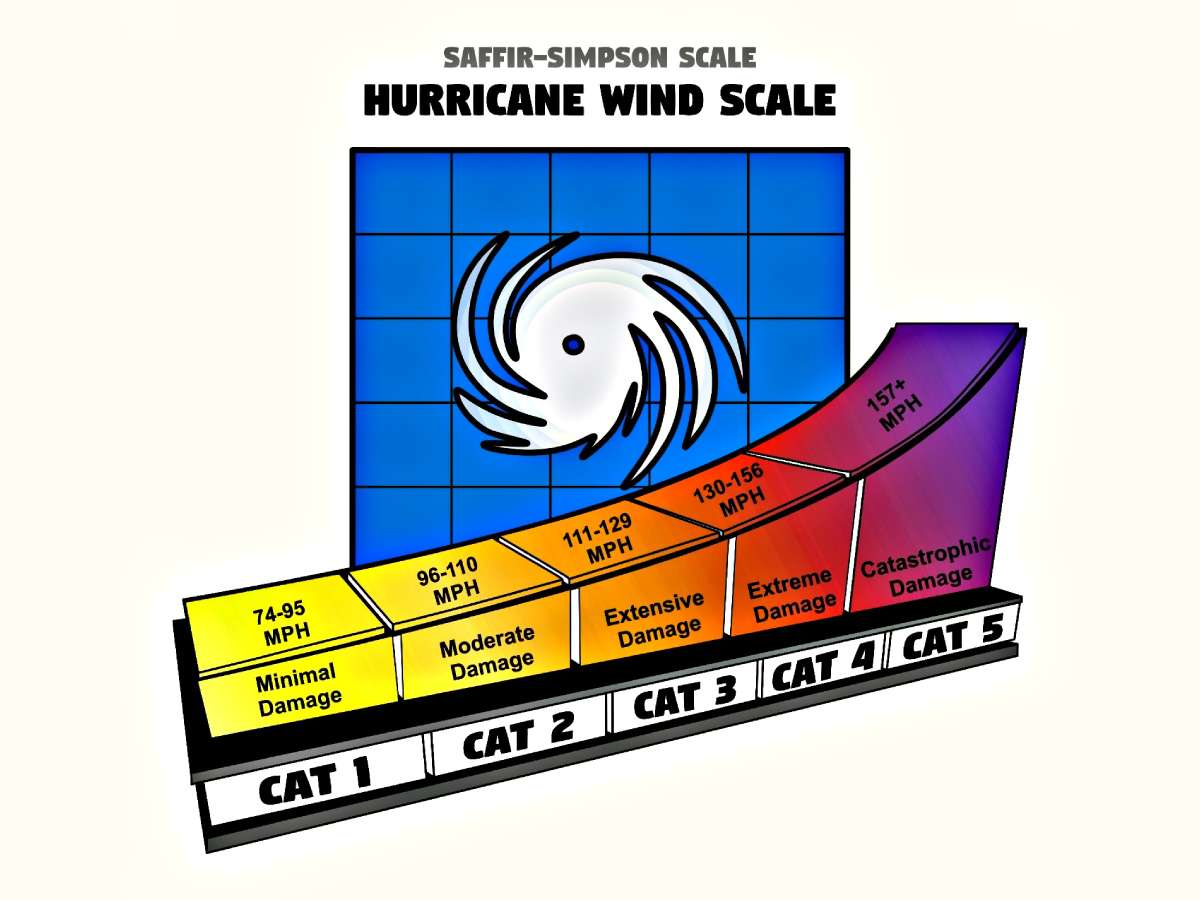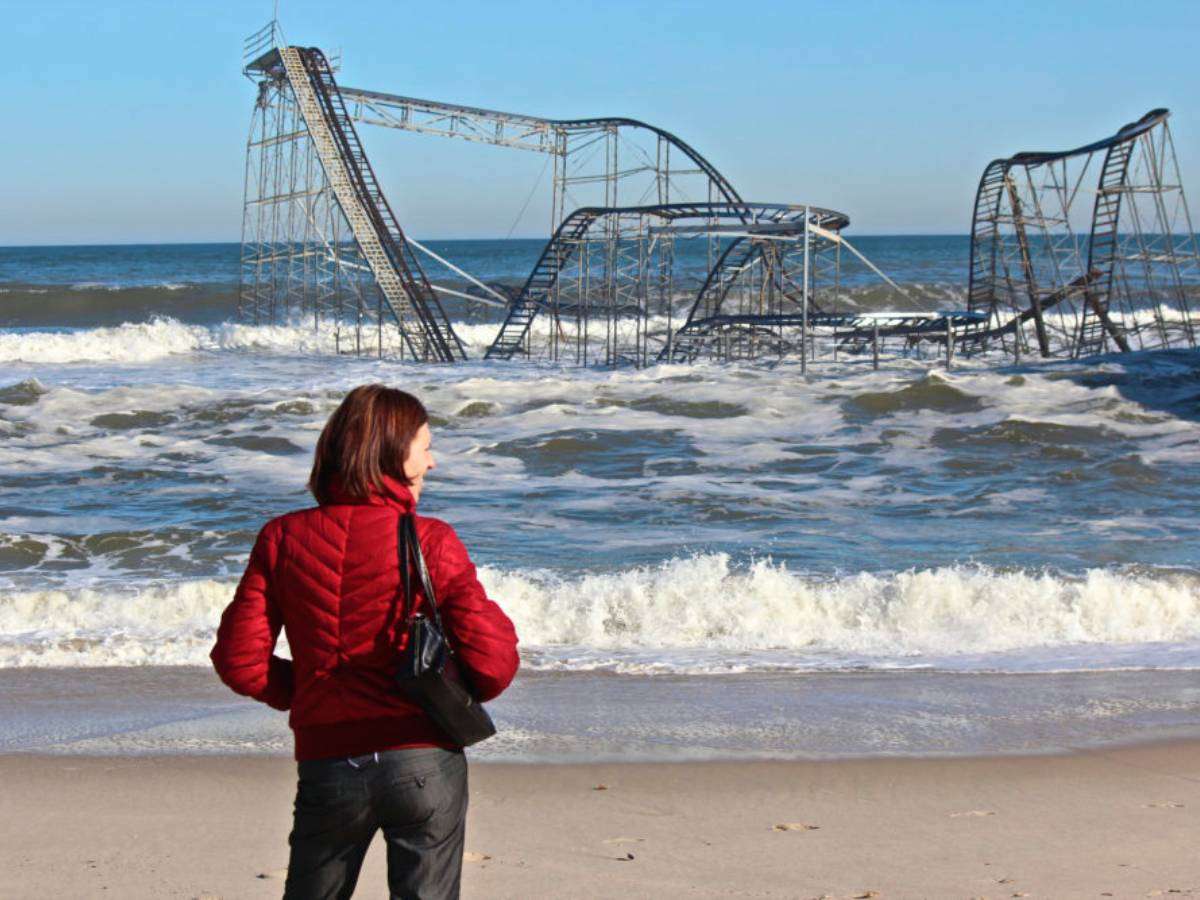
Florida is hot — which is one reason that Florida is one of the most popular vacation destinations in the world.
But why is Florida so hot? And is the Sunshine State getting even hotter?
As a native Floridian who loves studying meteorology (all things weather), I’d love to explain what’s going on here with the weather and climate in Florida…
Why Is Florida So Hot?
That’s what I wanted to know, too! Growing up, I always felt left out hearing stories of raking fall leaves and skating outdoors from my extended family in Boston, Baltimore, and other places north of Florida.
As I got older, I came to realize that Florida has its own unique climate — unlike any other in the United States.
There are a few reasons Florida is generally so much warmer than other places around the United States:
- Florida is surrounded by water. Most of the state is a peninsula that juts into the Atlantic Ocean basin. On the east side of the state is the Atlantic Ocean. And along its west is the Gulf of Mexico (which is technically a marginal sea of the Atlantic Ocean). The panhandle of the state (where cities such as Pensacola, Destin, Panama City, and Tallahassee are located) is also within close proximity of the Gulf of Mexico. In fact, in Florida, you’re never more than about 60 miles from the coast. Therefore, Florida is vastly influenced by the moderating effect sea waters have on surrounding land temperatures.
- Florida has a lot of humidity. One of the side effects of being near a lot of water is a generally higher humidity level year-round. High levels of humidity also have a moderating affect on temperatures — making it harder to cool down when humidity levels are extremely high. This is the case from late spring to early fall in Florida. If you think Florida is excessively hot, you might be mistaking the state’s summery mugginess for temperature. Relatively few places in Florida have ever officially exceeded 100 degrees or much beyond that — but a summertime temperature in the 90s and a dew point in the 70s (which equates to high humidity levels) can easily make it feel like 110 degrees or hotter outside.
- Florida is much closer to the equator than other continental states. This fact is only partially the reason why Florida is hot. Yes, Florida does stick pretty far south into the ocean. (Key West, Florida is just 90 miles or so from Cuba.) And it’s closer to the equator than pretty much any other part of the continental United States — with Key West situated less than 1 degree latitude north of the Tropic of Cancer. This, along with Florida’s overall proximity to the moderating effects of the ocean water, is why Florida is so warm. This is particularly true with the peninsular landmass of southern Florida — which is much narrower than it is in relatively cooler central and northern Florida.

So, Is Florida Tropical?
Believe it or not… No.
Florida is not really tropical — at least not by the technical definitions of its geographic location. Technically, for a place to be considered tropical in the purist sense, it must be located at 23.5 degrees north or points farther south toward the Equator.
Even at its southernmost point in Key West, Florida is still 70 miles north of the Tropic of Cancer — which is the boundary line for the tropics. However, Florida is a subtropical state whose southern reaches boast a tropical climate and the state has plenty of tropical elements.
Consider the following:
- Florida has palms — Just about every northerner who hates dealing with snow dreams of living in a place where they can grow a palm tree in their front yard. And palm trees are the very symbol of the tropical life. There are plenty of palms in Florida — which has 12 native palm trees. (FYI, palms aren’t really trees though.)
- Florida has tons of sunny beaches — When most people think of a tropical “paradise,” there’s usually a sunny beach involved. Guess what? Florida has beaches… and plenty of them of them! Florida has roughly 8,500 miles of coastline, and that’s plenty of shore for beaches!
- It rarely snows in Florida — Notice I didn’t say, “It never snows in Florida.” Contrary to popular belief, it does snow in Florida. But only on rare occasions. When it does snow in the Sunshine State, it’s usually falling in northern Florida — not places like Miami, where records show just one fluke snowfall in 1977. Otherwise, relatively warm year-round temperatures and little of the white stuff can make Florida feel like a tropical place.
Is Florida Getting Hotter?

According to leading climatologists and their data, yes, Florida is getting hotter — and quickly, too.
Climate data released in 2021 shows that, across the board, the 30-year average temperature in Florida is climbing — meaning the state is substantially warmer than it was even in just the 1970s or 1980s.
And not only is Florida getting hotter, but it’s also becoming wetter — a function of warmer temperatures supporting higher concentrations of water vapor.
The biggest change in temperature in Florida is found in its average overnight low temperatures.
This is a big deal for 2 reasons:
- Cooler nights give people a break from the hot daytime temperatures during the summer — and warmer nights mean less relief from the heat.
- The occurrence of chilly wintertime overnight lows are what usually cause freezes and frosts (when they do happen in Florida). Warmer nights affect everything from plant growth to the viability of natural habitats for native creatures.
Taking this one step further, warmer overnight lows in the winter mean potentially fewer frost and freeze events. That might seem like a good thing to some people. But, in reality, fewer frosts and freezes mean warm-weather invasive species like iguanas and pythons (which are currently taking over South Florida) will begin moving farther north.
As Florida gets hotter, it may also mean fewer distinctions between the seasons. And, yes, there are 4 distinctive seasons in Florida — particularly in central and northern Florida, where you really can see fall colors.
While Florida getting hotter may seem like a good thing to people who like it hot, it’s really a huge negative for the state and the wellbeing of its residents.
It could adversely affect everything from the types of pests crawling around your home to the production of fruits and vegetables. And don’t forget climate change’s effect on ocean levels (and thus beachfront homes), not to mention the development of severe tropical weather systems — such as hurricanes.
So, the bottom line? Florida getting hotter is bad news for you and for me.
Like this post? Save it to read again later… or share with others on Pinterest!




